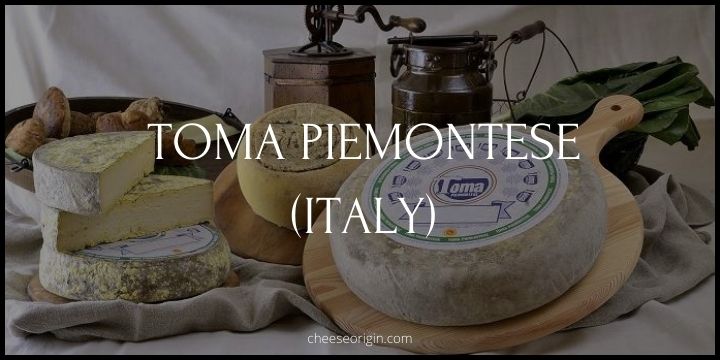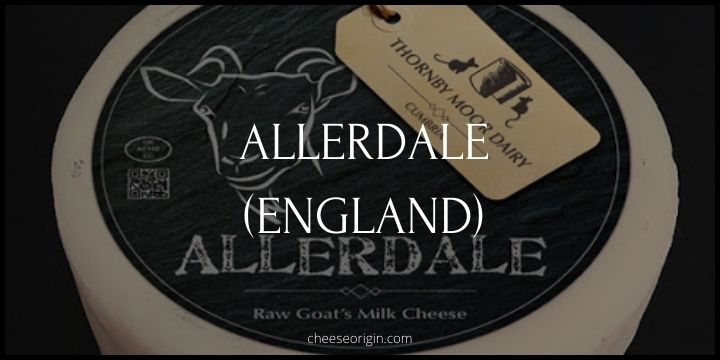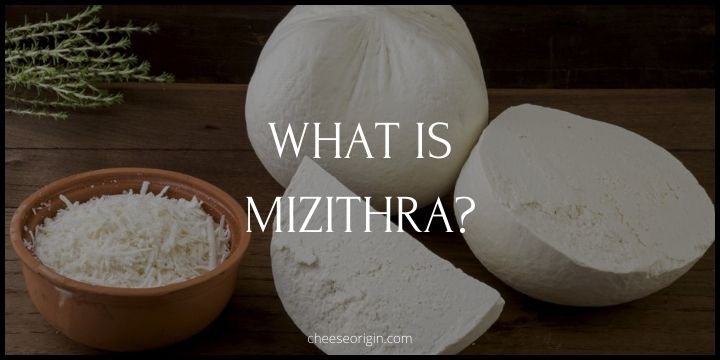What is Livarot Cheese? The Pungent Delight from Normandy

Originating from the small town that shares its name, Livarot is a culinary testament to the rich history and lush pastures of this northern French region. This soft, washed-rind cheese, affectionately known as ‘The Colonel’, is a pungent delight that has been tantalizing palates since the 16th century.
Encased in a distinctive striped rind, reminiscent of a colonel’s uniform, Livarot offers a unique, robust flavor that is as unforgettable as its aroma. Whether you’re a seasoned cheese connoisseur or an adventurous foodie, Livarot Cheese invites you on a sensory journey through the traditions and tastes of Normandy.
Quick Facts About Livarot
| Quick Fact | Description |
|---|---|
| Origin | Originates from Normandy, a region in northern France. |
| Age of the Cheese | One of the oldest types of cheese in France, dating back to the 16th century. |
| Nickname | Due to its strong smell, Livarot is often referred to as ‘The Colonel’ in reference to the five bands of raffia that traditionally surround the cheese, similar to a colonel’s stripes. |
| Texture | Soft and creamy |
| Taste | Strong, pungent, and earthy flavor. |
| Aroma | Robust aroma, often compared to farmyard odors. |
| Pairings | Pairs well with robust red wines and ciders. |
| Production Process | The cheese is washed in brine and colored with annatto, then aged for six to eight weeks. |
| Recognition | Livarot cheese was awarded AOC (Appellation d’Origine Contrôlée) status in 1975, meaning its production methods and region are protected by French law. |
| Appearance | It is typically sold in rounds, wrapped in strips of paper or reed, and has a sticky orange rind. |
What is Livarot?
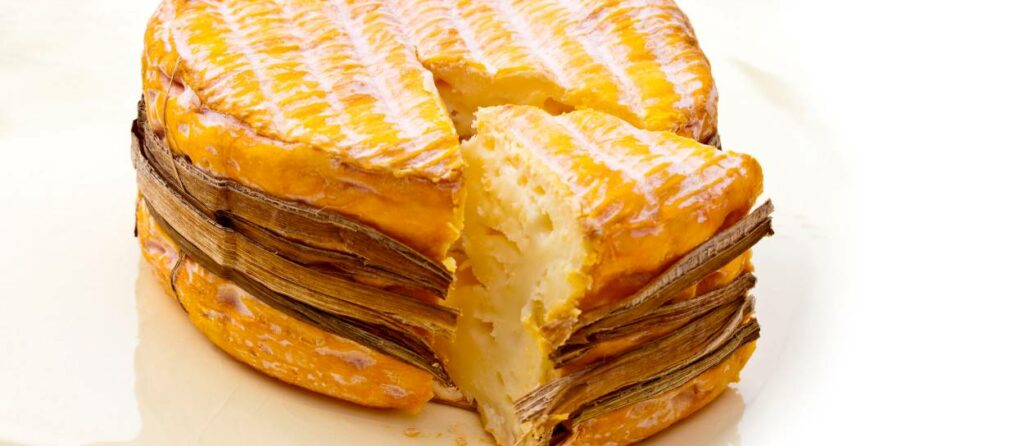
Livarot, often referred to as ‘The Colonel’, is a cheese of historical and gastronomical significance hailing from the Normandy region in northern France. Its distinctive moniker comes from the five bands of raffia that traditionally encircle the cheese, resembling a colonel’s stripes. But this isn’t the only thing that sets Livarot apart. Its powerful aroma, which can be likened to farmyard odors, is a defining trait that either entices or repels, depending on one’s palate.
Dating back to the 16th century, Livarot is one of France’s oldest cheeses. It boasts a soft, creamy texture and a robust, earthy flavor that has been appreciated by cheese connoisseurs for centuries. The intensity of its taste is matched by its preparation process. The cheese is meticulously washed in brine, colored with annatto, and then aged for six to eight weeks to develop its unique characteristics.
Livarot is not just a cheese; it’s a symbol of French culinary tradition. In 1975, it was awarded the AOC (Appellation d’Origine Contrôlée) status, recognizing and protecting its unique production methods and region of origin. Today, it continues to be a favorite among cheese lovers, often served with robust red wines and ciders that complement its pungent flavor.
Despite its strong smell, or perhaps because of it, Livarot holds a special place in the world of cheese. Its rich history, unique production process, and unmistakable flavor profile make it a cheese worth exploring for any true cheese aficionado.
What Does Livarot Taste Like?
Livarot is renowned for its robust, intense flavor. It’s a cheese that packs a punch, with a taste that’s pungent and earthy. The flavor profile can be described as bold and complex, with notes of nuts and a slightly tangy undercurrent. Some even detect a hint of spice or pepper.
Its rind, which is washed in brine during the aging process, contributes to its strong taste. The interior of the cheese, however, is softer and creamier, providing a contrasting texture and a slightly milder flavor compared to the rind. Despite its powerful taste, Livarot also has a certain creaminess that balances out its intensity.
That being said, the taste of Livarot can vary depending on factors such as the specific production process, the time of year, and the diet of the cows whose milk is used to make the cheese. As a result, every experience with Livarot can be a unique exploration of flavors.
Livarot Tasting Notes
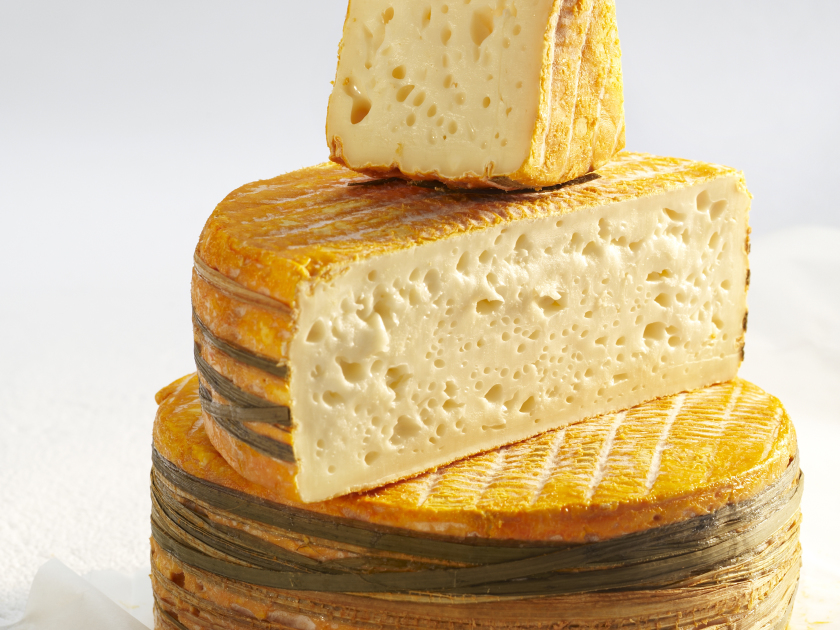
- Flavor Profile: Livarot has a strong, robust flavor that is both complex and distinct. Its taste can be described as earthy and pungent, with hints of nuts and a slight tanginess. Some might even detect a subtle spiciness or peppery undertone.
- Aroma: The aroma of Livarot is equally powerful and can be likened to farmyard odors. It’s not uncommon for it to fill a room with its scent, which can be an acquired taste for some.
- Rind Taste: The rind of the cheese, washed in brine during the aging process, contributes significantly to its strong taste. It has a saltier, more intense flavor compared to the interior of the cheese.
- Texture: Despite its powerful taste, Livarot has a soft and creamy texture. This creaminess helps to balance out the intensity of the flavor, providing a pleasant contrast.
- Aftertaste: The aftertaste of Livarot lingers on the palate, leaving a lasting impression of its bold, earthy flavors.
- Pairings: Livarot pairs well with robust red wines and ciders. The boldness of these beverages complements the strong flavor of the cheese, creating a harmonious gastronomic experience.
How Do You Eat Livarot Cheese?
- On its own: Livarot cheese is excellent when savored by itself, allowing you to fully appreciate its complex and robust flavor.
- With accompaniments: Livarot works well with a variety of accompaniments to enhance its taste. You could pair it with cured meats, roasted nuts, or even malty beers for a flavorful combination.
- With bread: One classic way to enjoy Livarot is with hearty whole-grain bread. This creates a delightful contrast between the robustness of the cheese and the mildness of the bread.
- With fruits: For a lighter option, try serving Livarot with fruits such as grapes. The sweetness of the fruit can complement the strong flavor of the Livarot.
- In recipes: Livarot can also be used in salads, soups, and other recipes. Its bold flavor can add depth and richness to your dishes.
- With cider: In its home region of Normandy, Livarot is commonly consumed with cider, a pairing that balances out the cheese’s intense flavor.
Is Livarot a Healthy Cheese?
Livarot cheese is a complete food, rich in vitamins and minerals. This soft-ripened, washed-rind cheese is made with whole cow’s milk, providing an excellent source of protein. Every 100g of Livarot cheese offers between 22.5 to 30g of proteins, and around 4.85g of carbohydrates, and supplies approximately 296 calories.
However, like all cheeses, it should be consumed in moderation due to its high-fat content, which stands at around 46g per 100g. Additionally, it contains about 400mg of sodium per serving and has a cholesterol content of 300mg.
Despite its pungent aroma, Livarot is considered one of the finest cheeses by aficionados, particularly for its soft, golden paste with little holes and a springy texture.
Livarot Nutrition Facts
| Nutrient | Amount (per 100g) |
|---|---|
| Calories | 296-354 Calories |
| Protein | 22.5-31g |
| Fat | 21.8-46g |
| Saturated Fat | 14-14.1g |
| Carbohydrates | <0.5-8g |
| Sugars | <0.5g |
| Fiber | <0.5-0g |
| Sodium | 400mg |
| Cholesterol | 300mg |
7 Best Livarot Substitutes
| Cheese | Reason for Substitution |
|---|---|
| Epoisses | This French cheese is also washed-rind and has a similar strong, pungent flavor. Its creamy texture and robust flavor profile make it a good substitute for Livarot. |
| Pont l’Eveque | Another cheese from Normandy, its mild taste and slightly sweet flavor can serve as a less intense alternative to Livarot. |
| Munster | This Alsatian cheese has a strong aroma and flavor that can stand up to Livarot. Its soft texture also resembles that of Livarot. |
| Camembert | Also originating from Normandy, Camembert has a milder flavor but still offers the creamy texture and earthy notes found in Livarot. |
| Roquefort | If you’re looking for a cheese with a powerful flavor to replace Livarot, Roquefort could be a good choice. It’s a blue cheese, so it has a different kind of intensity, but it can still hold its own. |
| Taleggio | An Italian cheese with a washed rind, Taleggio has a strong smell but a relatively mild flavor, making it a good option for those who find Livarot too overpowering. |
| Limburger | A Belgian cheese known for its strong aroma and flavor, Limburger can serve as a substitute for Livarot in dishes where a robust cheese is required. |
What Pairs Well With Livarot?
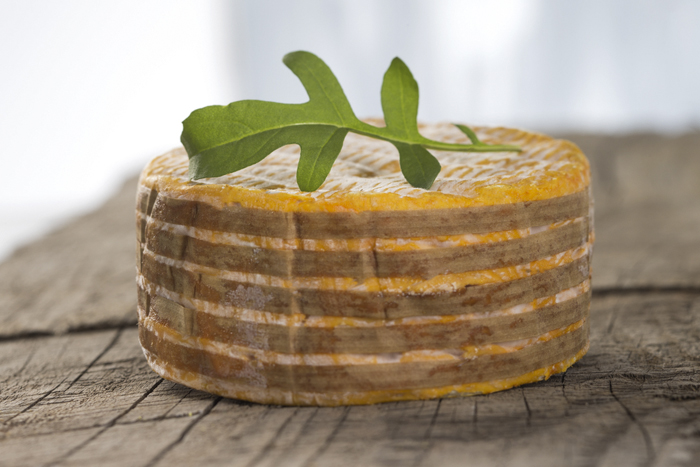
Food that goes well with Livarot:
| Category | Food |
|---|---|
| Bread | Whole grain bread, Baguette, Rye bread, Sourdough bread |
| Fruits | Apples, Grapes, Pears, Figs |
| Nuts | Walnuts, Almonds, Hazelnuts |
| Meats | Prosciutto, Salami, Smoked ham |
| Spreads | Fig jam, Honey, Quince paste |
| Vegetables | Roasted bell peppers, Pickles, Olives |
| Desserts | Dark chocolate, Fruit tarts, Apple pie |
Also read: What Fruit Goes on a Charcuterie Board?
Beverage that goes well with Livarot:
| Category | Beverage |
|---|---|
| Wine | Bordeaux, Burgundy, Chardonnay, Cider (traditional from Normandy) |
| Beer | Belgian Tripels, English Barleywine, Brown Ales |
| Spirits | Calvados (apple brandy from Normandy), Whiskey, Brandy |
| Non-Alcoholic | Apple juice, Pear juice, Non-alcoholic cider |
Also read: Best Wine and Cheese Pairings: The Ultimate Guide
The History of Livarot
In the past, Livarot was traditionally made on farms in the region, using milk from cows that grazed on the rich and fertile pastures of Normandy. The cheese was then matured for several weeks, during which time it would develop its distinctive pungent aroma and strong, creamy flavor.
Livarot gained recognition in the 19th century when it started being produced on a larger scale, thanks to the development of railway networks which enabled the cheese to be distributed more widely. At its peak, there were hundreds of Livarot producers in Normandy.
However, over time, the number of producers dwindled, largely due to the stringent production methods required to make this cheese and the rise of mass-produced cheeses. Today, there are only a few dairies left that still produce Livarot according to traditional methods.
Despite this, Livarot remains a cherished part of French gastronomy. It’s protected by an Appellation d’Origine Contrôlée (AOC) status since 1975, meaning that true Livarot can only be produced in a specific region using a specific method. This helps ensure the quality and tradition of this beloved cheese are preserved.
Frequently Asked Questions
1. How to pronounce Livarot
“Livarot” is a French word and it’s pronounced as “Lee-vah-roh”. The ‘t’ at the end is silent, as is common in French. The emphasis is on the last syllable (roh). Please note that pronunciation can vary slightly based on regional accents.
2. What does Livarot mean?
“Livarot” is actually the name of a small town in the Normandy region of France. The Livarot cheese got its name from this town, as it’s where the cheese was originally produced. The word “Livarot” itself doesn’t have a specific meaning in French beyond its geographical significance.
Also read:
- What is Stracchino (Crescenza)? The Creamy Treasure of Northern Italy
- What is Brie de Melun? An Ancestor of All Bries
- What is Cooper Sharp Cheese? A Taste of Tradition
- What is Pepper Jack Cheese? The Spicy Star of American Dairy
- What is Gouda? The Golden Glory of Dutch Cheese
- What is Quark Cheese? A Hidden Dairy Gem
- What is Oaxaca Cheese? A Staple in Mexican Cuisine


